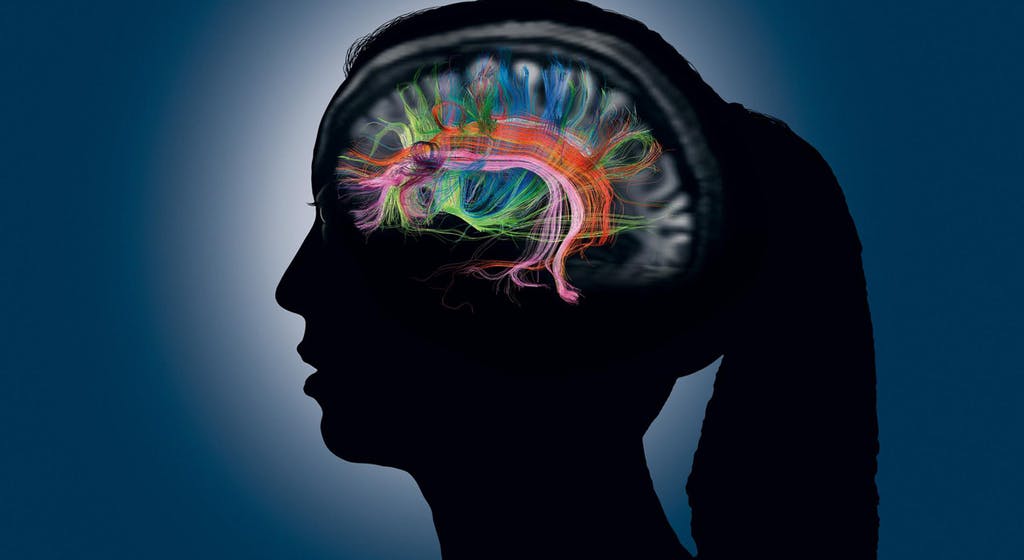(Neuroscience New) Oxford University researchers have discovered that learned knowledge is stored in different brain circuits depending on how we acquire it.
Related Brain Exercises: 12 Simple Ways to Stimulate Your Mind and Memory
by Staff Writer, October 25th, 209
Summary: Neural pathways for learning differ depending on how each person has learned a new skill.
Source: Oxford University
The researchers from the Department of Experimental Psychology, the Wellcome Centre for Integrative Neuroimaging (WIN) and the Nuffield Department of Clinical Neurosciences, used an MRI scanner to observe changes in parts of the brain associated with learning and learned experiences while volunteers completed tasks that involved a reward.
Participants also attended two sessions prior to scanning to compare their individual associations between stimulus sequences and reward.
They found that the changes seen in the participants’ neural pathways associated with learning were different depending upon how each person had learned the new skill.
Miriam Klein-Flugge of the Department of Experimental Psychology, said: ‘We know that humans can learn in different ways. Sometimes we learn simply by observing relationships in the world, such as learning the layout of a new town, or relationships between people. But another way to learn is by setting particular goals, like children learning to operate toys by trial and error.

They found that the changes seen in the participants’ neural pathways associated with learning were different depending upon how each person had learned the new skill. The image is adapted from the Oxford University news release.
‘This research shows that we have multiple networks in the brain that help us store learned knowledge or associations, which means that damage to one part of the brain will still leave alternative mechanisms available for learning.
Buy Book Your Brain on Porn: Internet Pornography and the Emerging Science of Addiction
‘We also learned that some of this knowledge is very persistent, and the brain does not forget about it even when it becomes irrelevant, while knowledge acquired through alternative learning mechanisms is more flexible and can more easily be changed to new knowledge.’
As well as showing that the brain can learn in different ways and that these multiple mechanisms for learning rely on the concerted effort of multiple different brain networks, the study also showed that unlearning associations can be easier when they were acquired by observation compared to a goal-directed manner.
Miriam Klein-Flugge added: ‘It is well known that it is good for our brains to continue to learn new things throughout life, which is why understanding the different ways in which we learn and store knowledge could be beneficial and help each of us to find out which way of learning suits us best.’
Source:
Oxford University
Media Contacts:
Miriam Klein-Flugge – Oxford University
Image Source:
The image is adapted from the Oxford University news release.
Original Research: Open access
“Multiple associative structures created by reinforcement and incidental statistical learning mechanisms”. Miriam C. Klein-Flügge, Marco K. Wittmann, Anna Shpektor, Daria E. A. Jensen & Matthew F. S. Rushworth.
Nature Communications doi:10.1038/s41467-019-12557-z.
Abstract
Multiple associative structures created by reinforcement and incidental statistical learning mechanisms
Learning the structure of the world can be driven by reinforcement but also occurs incidentally through experience. Reinforcement learning theory has provided insight into how prediction errors drive updates in beliefs but less attention has been paid to the knowledge resulting from such learning. Here we contrast associative structures formed through reinforcement and experience of task statistics. BOLD neuroimaging in human volunteers demonstrates rigid representations of rewarded sequences in temporal pole and posterior orbito-frontal cortex, which are constructed backwards from reward. By contrast, medial prefrontal cortex and a hippocampal-amygdala border region carry reward-related knowledge but also flexible statistical knowledge of the currently relevant task model. Intriguingly, ventral striatum encodes prediction error responses but not the full RL- or statistically derived task knowledge. In summary, representations of task knowledge are derived via multiple learning processes operating at different time scales that are associated with partially overlapping and partially specialized anatomical regions.
Stillness in the Storm Editor: Why did we post this?
Psychology is the study of the nature of mind. Philosophy is the use of that mind in life. Both are critically important to gain an understanding of as they are aspects of the self. All you do and experience will pass through these gateways of being. The preceding information provides an overview of this self-knowledge, offering points to consider that people often don’t take the time to contemplate. With the choice to gain self-awareness, one can begin to see how their being works. With the wisdom of self-awareness, one has the tools to master their being and life in general, bringing order to chaos through navigating the challenges with the capacity for right action.
– Justin
Not sure how to make sense of this? Want to learn how to discern like a pro? Read this essential guide to discernment, analysis of claims, and understanding the truth in a world of deception: 4 Key Steps of Discernment – Advanced Truth-Seeking Tools.
Stillness in the Storm Editor’s note: Did you find a spelling error or grammar mistake? Send an email to [email protected], with the error and suggested correction, along with the headline and url. Do you think this article needs an update? Or do you just have some feedback? Send us an email at [email protected]. Thank you for reading.
Source:
https://neurosciencenews.com/associated-memory-learning-15126/

Leave a Reply